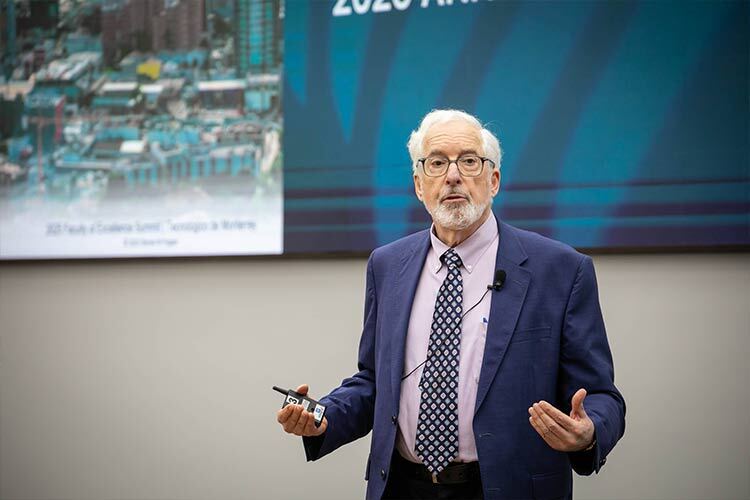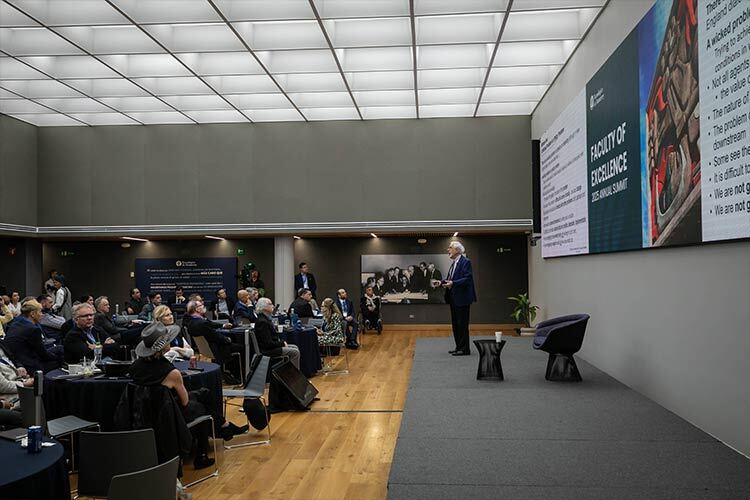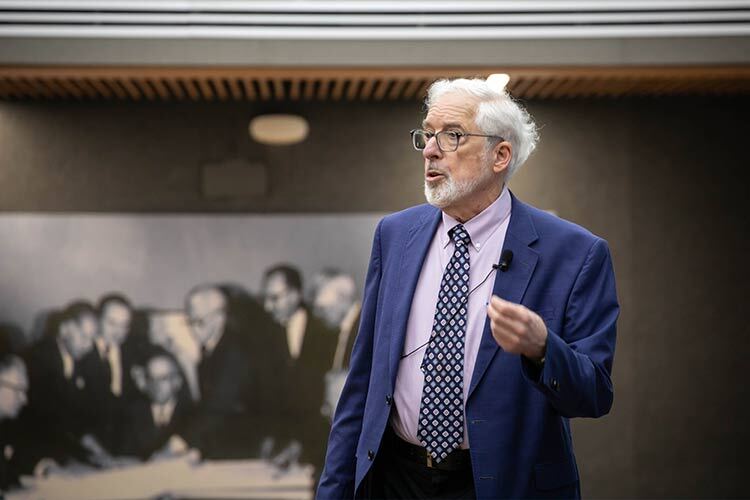Poverty, security, urban transportation, corruption, and affordable housing are just a few of the complex challenges or wicked problems Mexico faces, according to Steven Popper, a distinguished professor at Tec de Monterrey and a member of the Faculty of Excellence initiative.
During his talk, “Addressing Mexico’s ‘Wicked’ Problems: The Case of Housing Affordability in Metropolitan Monterrey,” at the Faculty of Excellence Summit 2025, Popper spoke to global leaders from various fields about the nature of these issues and how they manifest in the country.
Popper is a distinguished professor in Decision Sciences at Tec’s School of Social Sciences and Government. He also teaches Science and Technology Policy at the Pardee RAND Graduate School. He previously served as an associate director at the Science and Technology Policy Institute, leading studies on critical technological issues for the White House.
The expert explained that these problems are difficult to define because they involve multiple perspectives and conflicting interests. They also lack a definitive solution and are often tied to public policy.

The Characteristics of Wicked Problems
Wicked problems can never be fully solved—only managed. This can be done through effective policy design, collaborative action among different stakeholders, and the ability of organizations to navigate these challenges.
Popper explained that addressing these issues in Mexico is particularly difficult. Despite the country’s wealth of human talent, structural problems persist, such as the lack of collaboration between the public and private sectors and civil society. On top of that, there is a fundamental challenge in building trust among different actors.
He also pointed out that major cities like Mexico City, Monterrey, and Guadalajara lack comprehensive urban planning. Additionally, there are no muscular regional coordination bodies to implement strategic solutions.

The Affordable Housing Problem in Monterrey
According to Popper, one example of a wicked problem in Mexico is the affordable housing crisis in Monterrey. This issue stems from uncontrolled urban sprawl that expands outward rather than upward, a lack of accessible financing for housing in well-connected areas, and significant challenges related to mobility and transportation.
The professor presented a case study currently being developed by researchers from the Center for the Future of Cities, the Research Center for Decision Science at the School of Government and Public Transformation, and other members of the Faculty of Excellence.
The team applied a method focusing on four key aspects: defining a clear vision, identifying strategic concepts, assumption-based planning, and designing robust pathways to achieve the desired future.
As part of this methodology, they established a policy lab where government representatives, real estate developers, civil organizations, and experts in urban planning and public policy collaborate in decision-making.
The team proposed a vision for the city, looking ahead to 2040. They identified pathways to make this vision a reality, considered potential obstacles, and outlined strategic actions to move forward collectively toward the goal.
Their approach to this challenge is built around several key pillars: metropolitan efficiency, adequate financing, effective urban planning, 15-minute cities, and a cultural shift in how people perceive insufficient housing and urban development.
“The change that we may bring in the greater Monterey area could affect the lives of millions of people, but ultimately, it’s not going to change the world. However, is that the process by which we intend to do it, if replicated, can bring revolution,” said Popper.
Did you find this story interesting? Would you like to publish it? Contact our content editor to learn more at marianaleonm@tec.mx
















